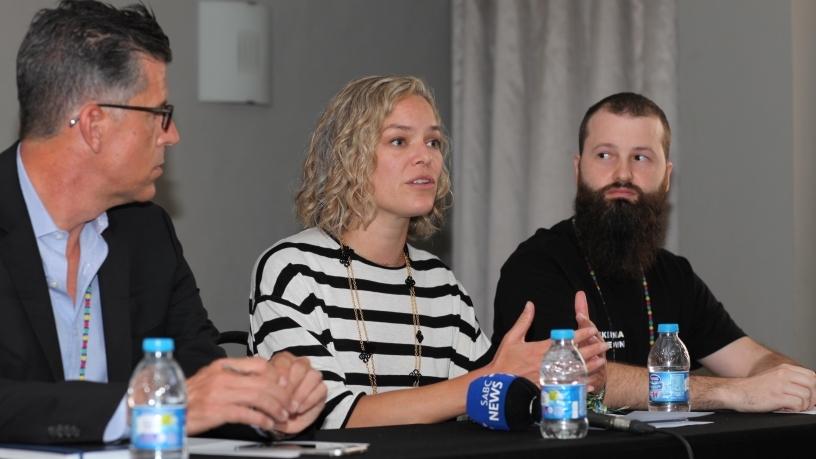
Wikimania 2018 kicked off in Cape Town on Friday. An annual gathering of volunteers from around the world, the aim of the event is to discuss Wikipedia and the Wikimedia Foundation's various projects.
This year's theme was Bridging Knowledge Gaps: The Ubuntu Way Forward.
With this theme in mind, the conference opened with an address by two former students from Sinenjongo High School in Joe Slovo Park. The pair formed part of a group of students who wrote an open letter to SA's big cellular network providers in 2013. As learners at a school without a library, they were petitioning for the zero rating of Wikipedia so they could get access to free information.
"Our school didn't have adequate infrastructure and resources. Wikipedia was a big part of our learning. It also gave us insights into our desired fields of study. With access to this online source of information we could also make more informed decisions about our future career paths," said Sinombongo Macekxswago, who is now studying medicine at the University of Cape Town.
"Most of us know that Wikipedia is a place to find information about a variety of subjects, from the dassies of Cape Town, to a new, and very exciting, addition like the pages from the diary of the great Nelson Mandela," said Katherine Maher, executive director of the Wikimedia Foundation.
The addition of these diary entries to Wikipedia Commons (an online repository of free-use images, sounds and other media files) was announced earlier in the day.
Speaking at a press conference on Friday morning, Douglas Scott, president of Wikipedia SA and local organising committee chairman, explained that the Nelson Mandela Foundation had donated 87 pages of handwritten notes from a diary Mandela kept in the 1960s.
Reading something in someone's own handwriting just feels more meaningful, he said. And it's particularly special to read the handwriting of someone as influential as Nelson Mandela.
Different perspectives
The Wikipedia community is made up of groups of people around the world who believe in the power of knowledge as an equaliser. And yet, there are still tremendous gaps, particularly when it comes to telling the stories of people and places that have historically been omitted from global dialogues.
According to Maher, it is critical that more voices, communities and histories contribute to Wikipedia and make their unique perspectives available to everyone, anywhere in the world.
Project Tiger is an initiative to promote greater diversity, which the Wikimedia Foundation recently undertook with the help of Google.
This pilot programme was run in India and aimed to increase locally relevant knowledge in 12 different Indic languages.
Google provided the necessary hardware and Internet access to content editors. It also guided these editors around what to research and how to create useful content in their own languages. After three months of writing, the volunteers created nearly 4 500 articles, across 12 languages.
"Based on the initial success of this pilot, we plan to expand this kind of project into other areas," stated Maher.
For Banks Baker, head of global product partnerships and search content at Google, these collaborations allow Google to work with users on the ground to develop content that is appropriate for them.
"By working together and investing in content creation projects, we can accelerate the path users take to access knowledge. The results from Project Tiger were positive but there's still a lot to do."
All of this ties into the foundation's drive to shift its focus from the north to the south, concluded Maher.
"Since Wikipedia is such a powerful resource in terms of how people understand the world, we're actively engaging in understanding who is driving these narratives and are always working to shift the dialogue around the world we live in."
Share